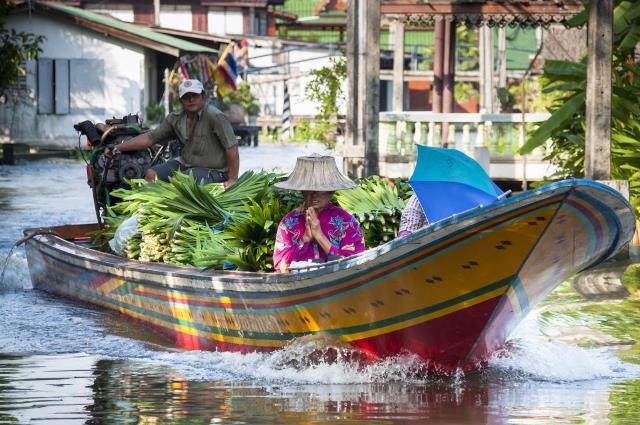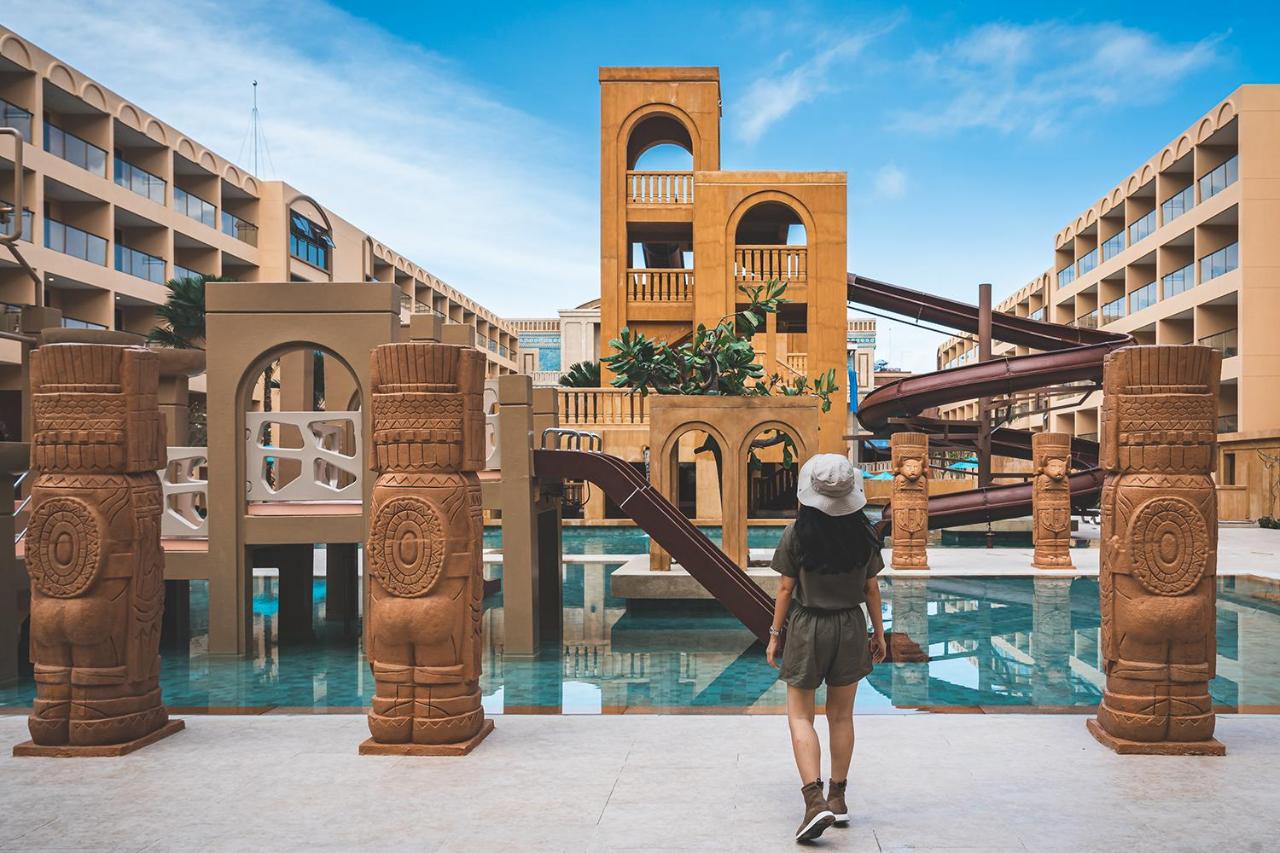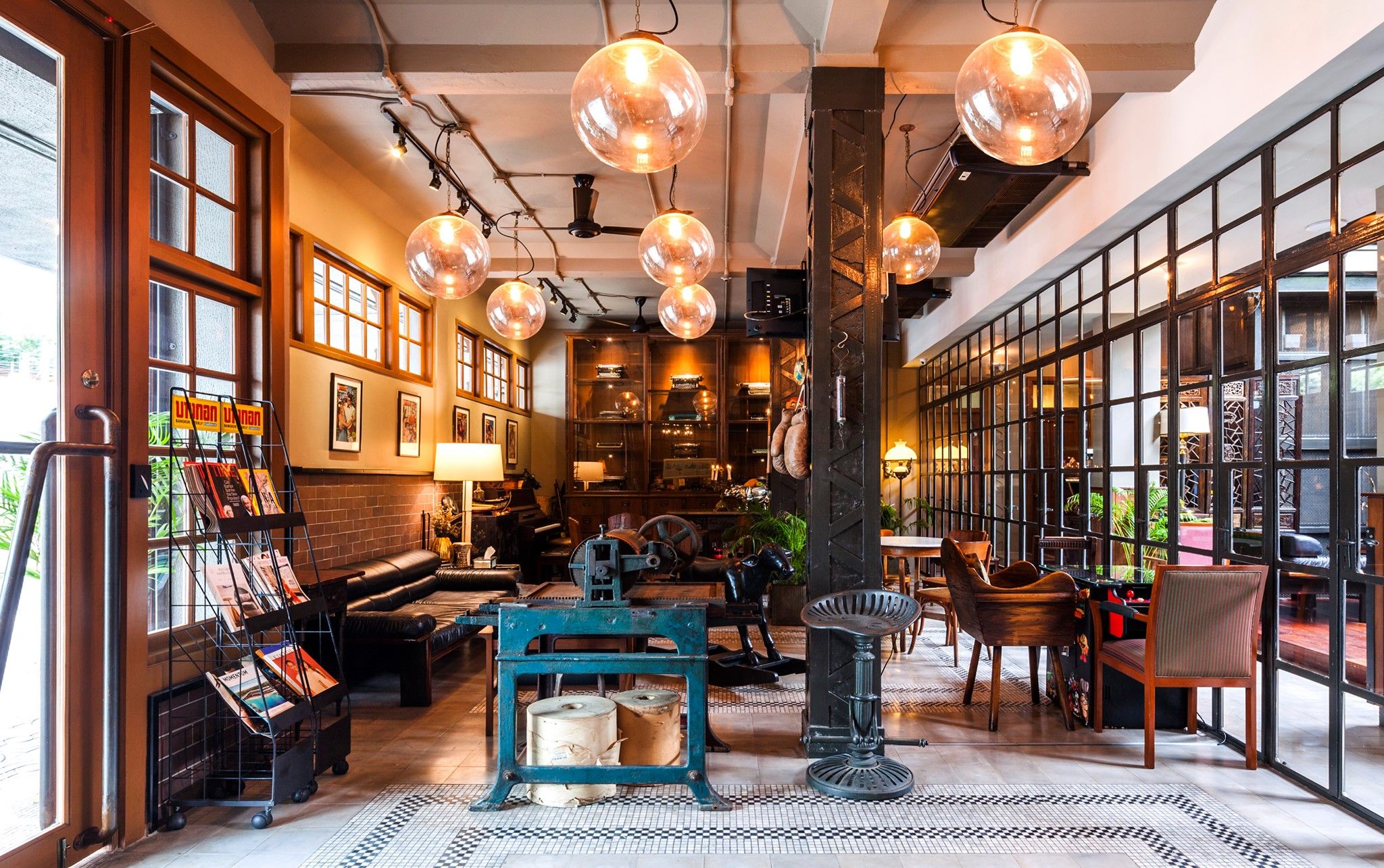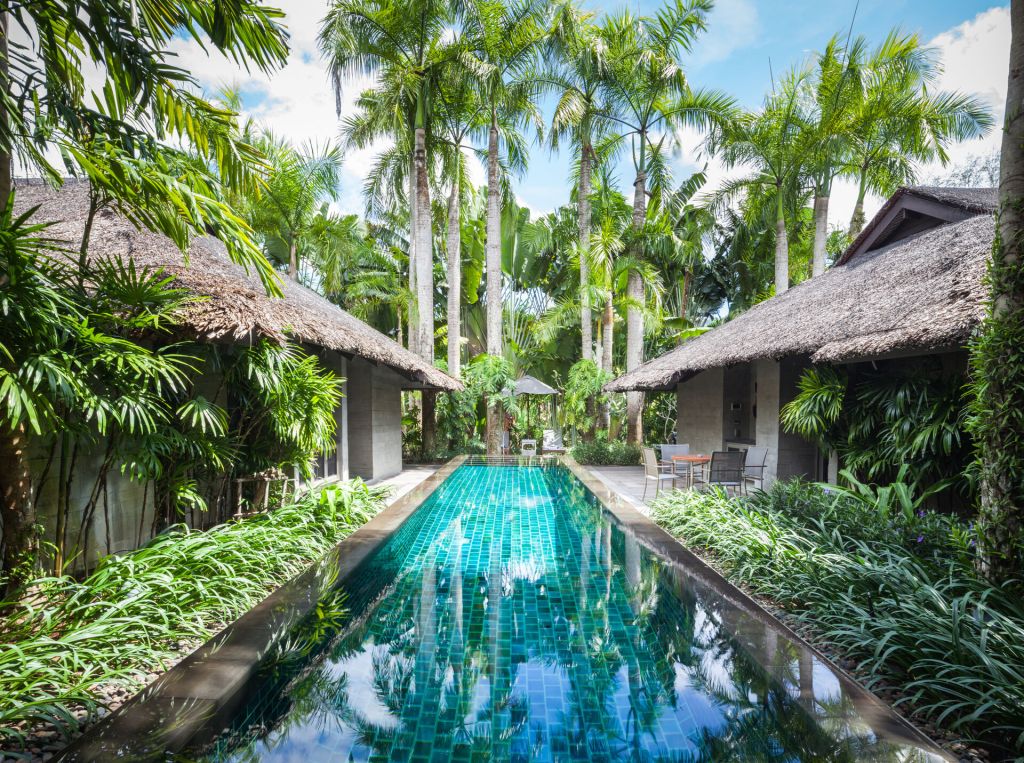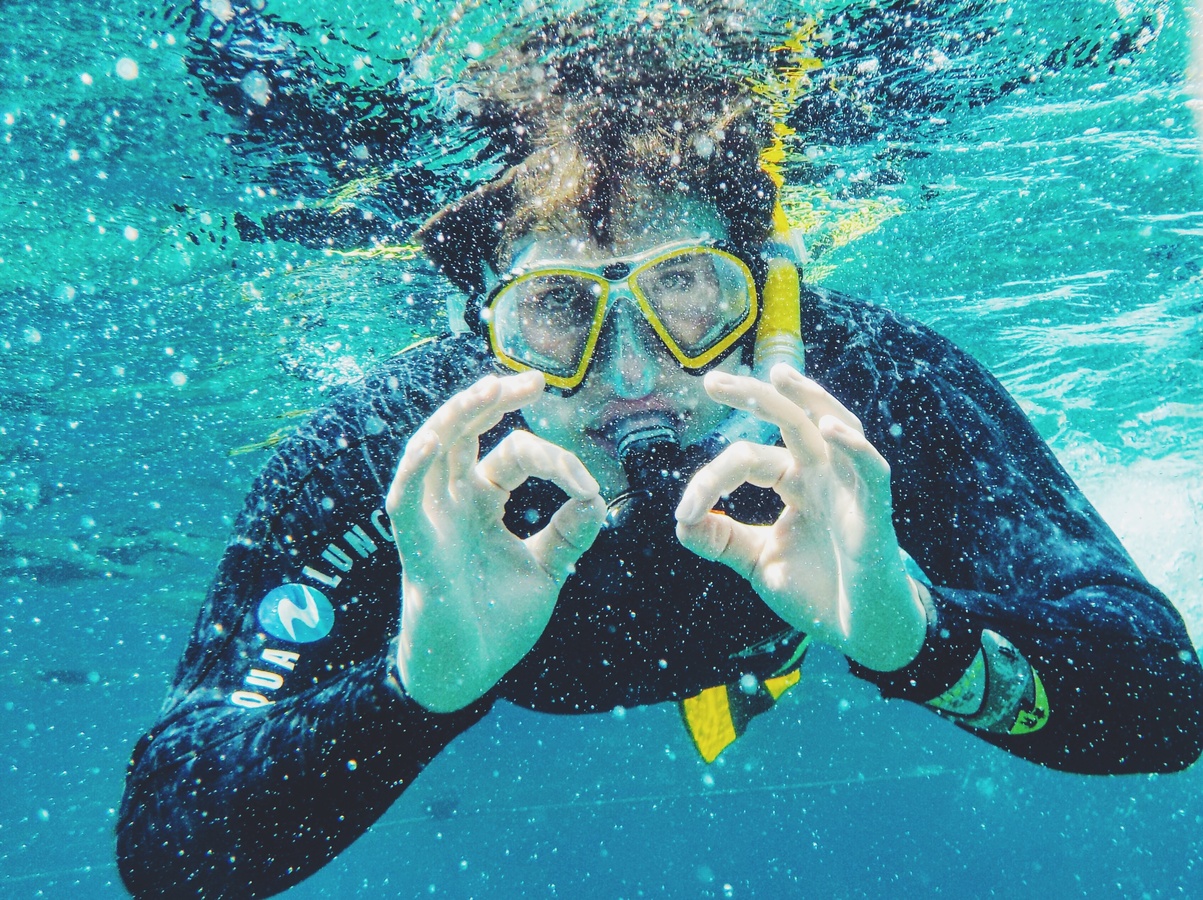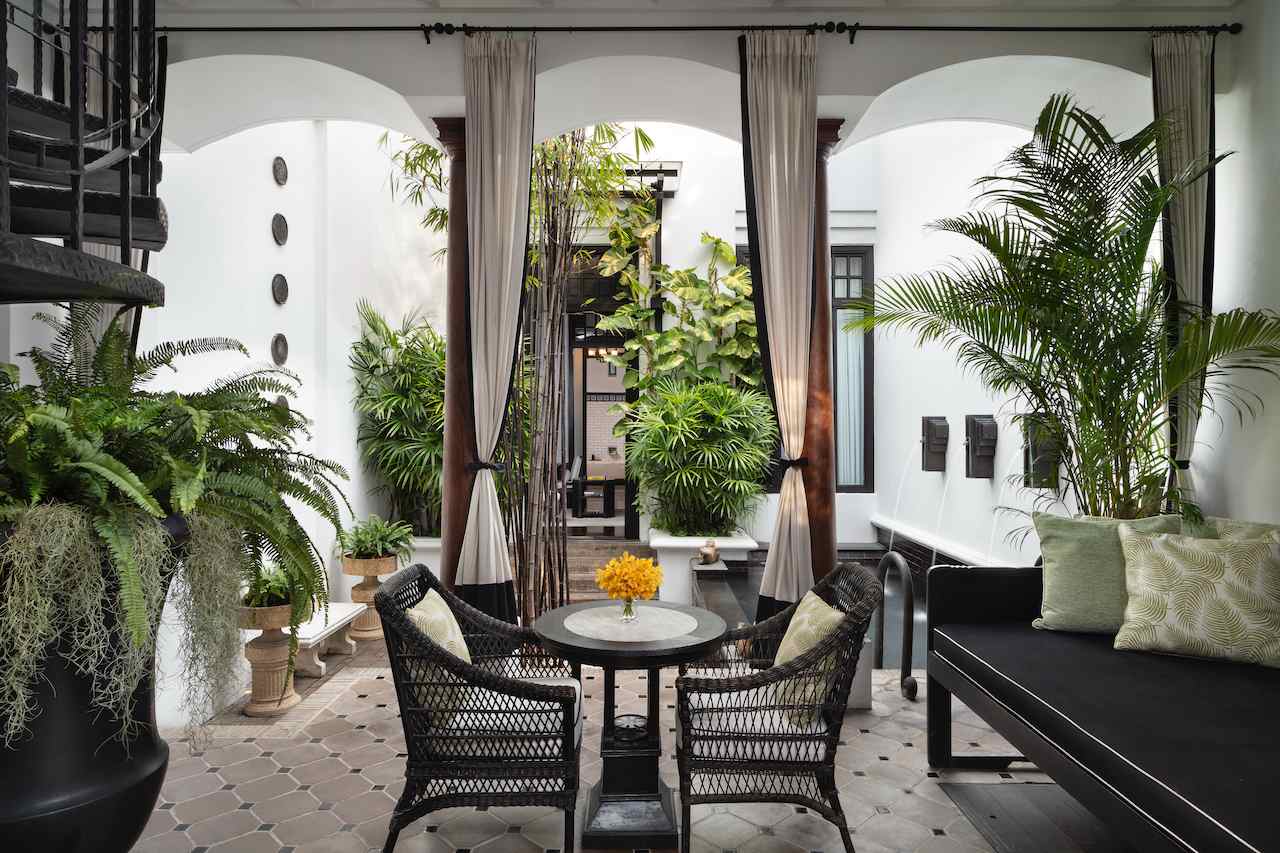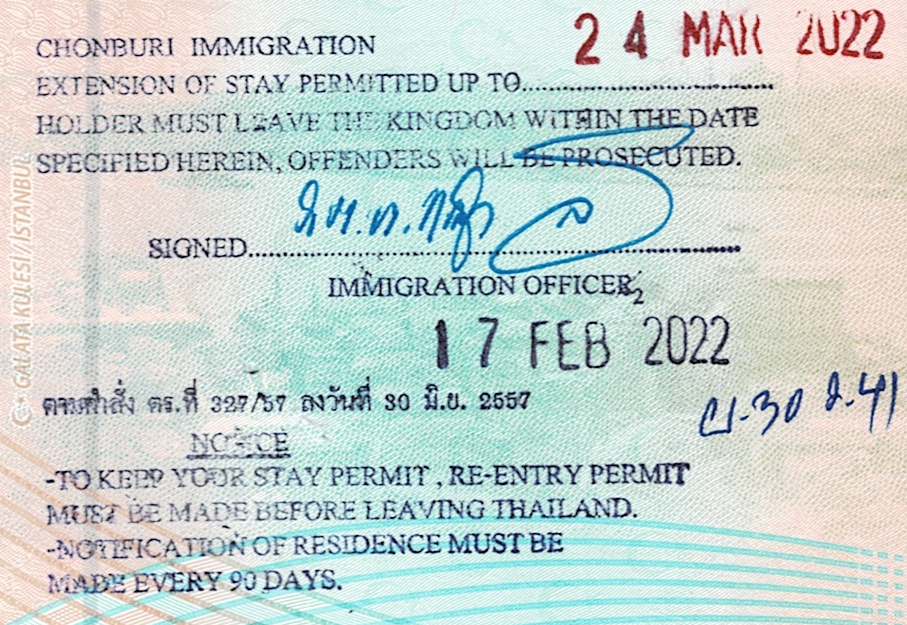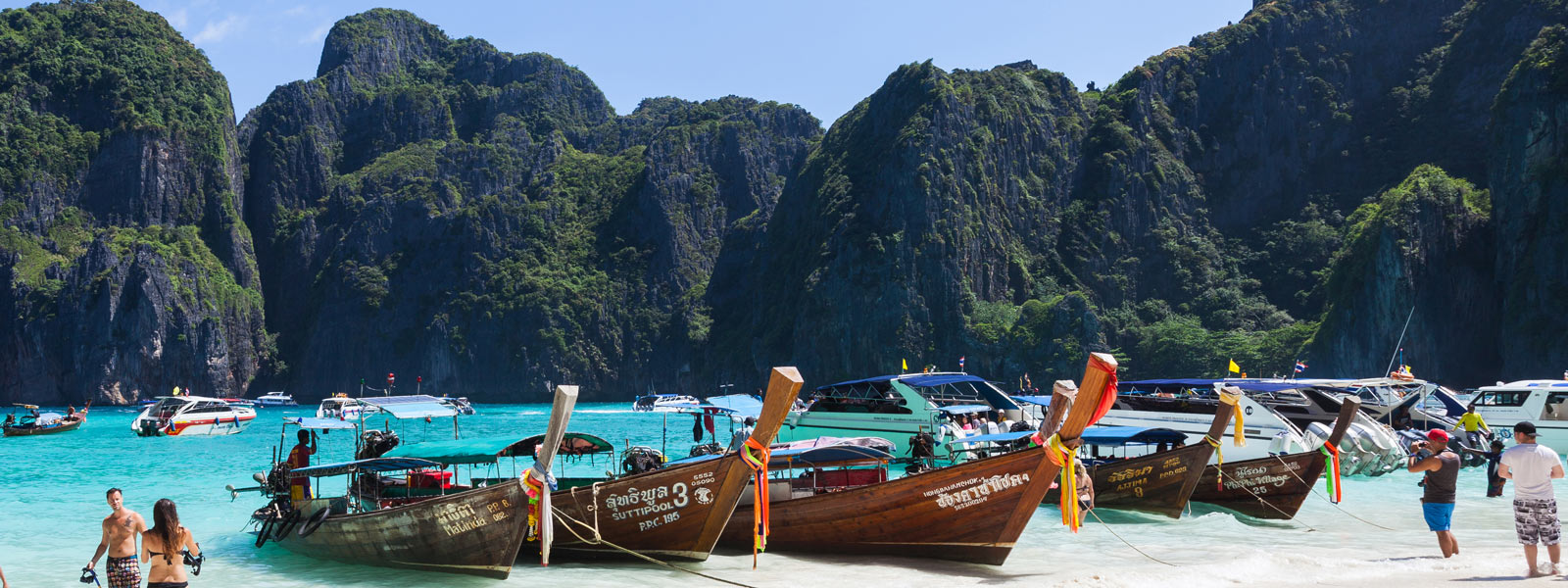
Thailand is a tropical kingdom that has entirely transformed into one vast tourist hub. Beaches, intricate Buddhist architecture, lush gardens, night markets, exotic dances, vibrant and somewhat spicy shows, elephants, coral reefs, picturesque islands, massage parlors, and fusion cuisine – it’s hard to imagine what Thailand doesn’t offer. Each year, 30–40 million tourists visit this Southeast Asian country to immerse themselves in exotic experiences at a reasonable cost.
As you explore this Thailand travel guide, you’ll find a diverse and fascinating world within a single country.
Top Destinations in Thailand
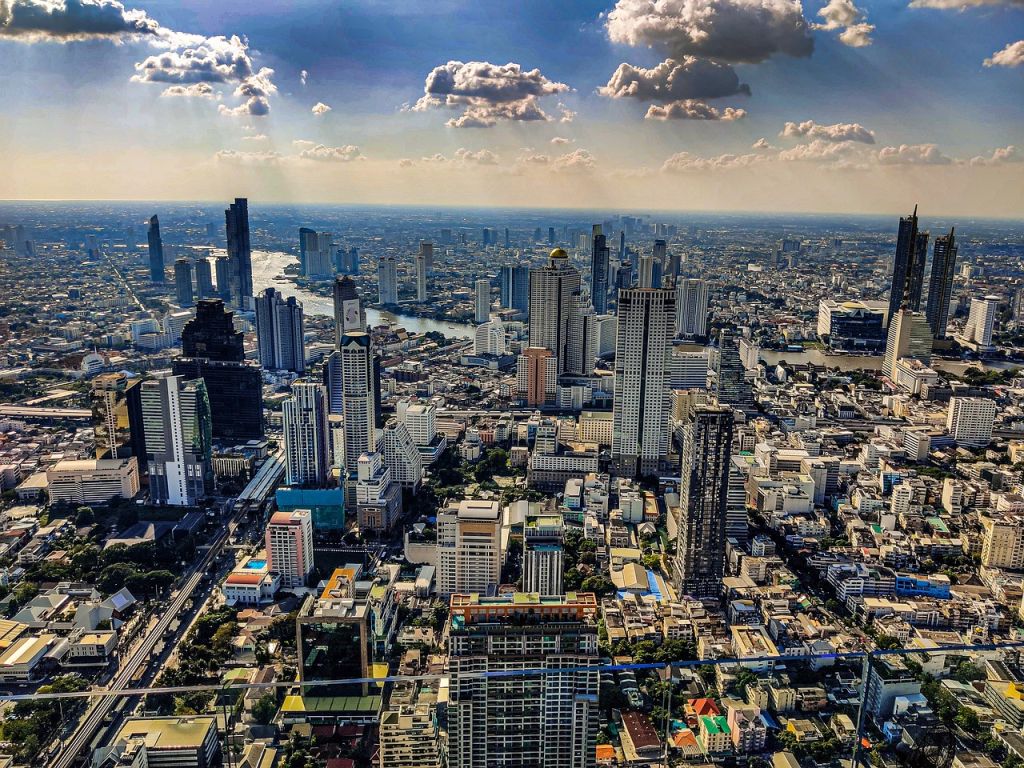
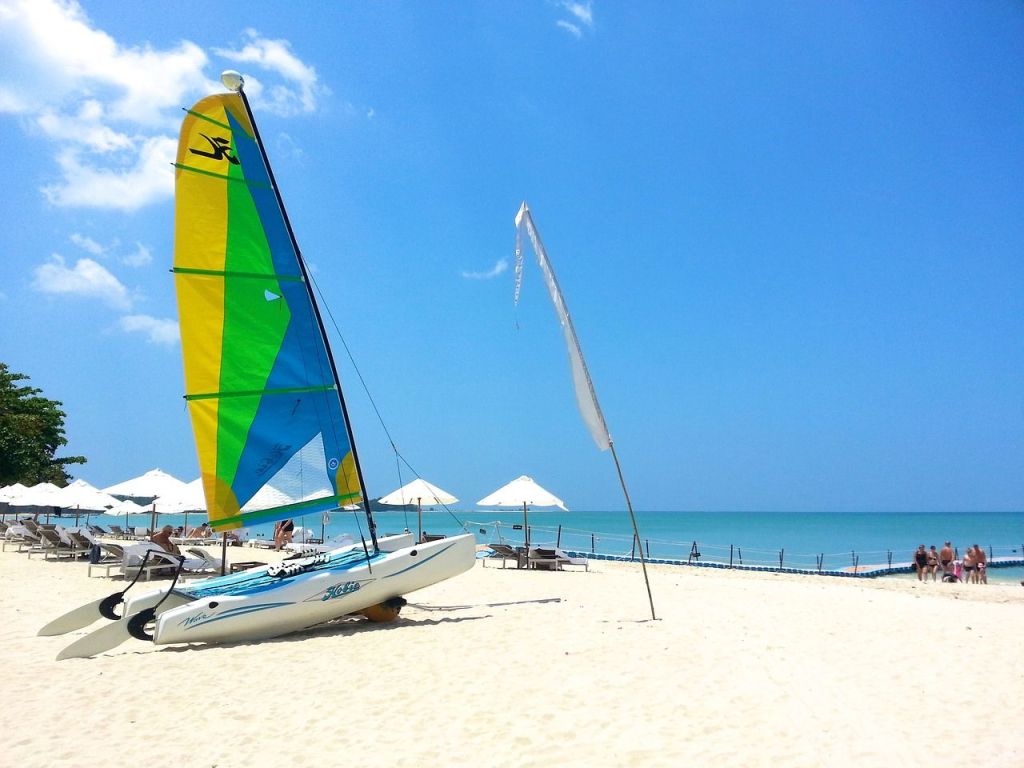
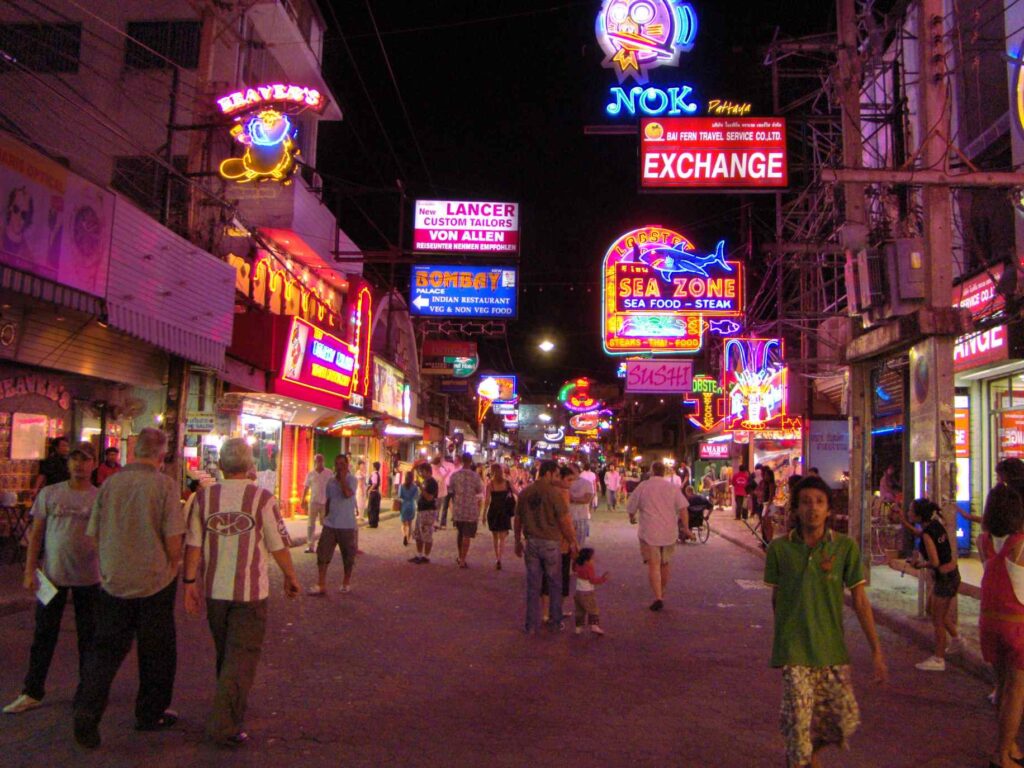
Key Information about Thailand:
- Capital: Bangkok.
- Historical Name: Siam.
- Official Language: Thai.
- Current Monarch: King Rama X, also known as Maha Vajiralongkorn (ascended the throne in 2016).
- Primary Religion: Buddhism (practiced by approximately 95% of the population). In the south, where Malays reside, Islam is prevalent.
- Time Zone: UTC+7.
Climate of Thailand
Thailand experiences a humid tropical climate with an average annual temperature of +29 °C. Temperature variations are considerable, yet the country never gets too cold, ranging from +18 °C in winter in the north (on cool days) to +42 °C in hot months. Even in winter, temperatures on southern resorts often exceed +30 °C. The sea remains warm throughout the year, reaching +28 °C in winter and heating up to +30 °C in summer.
Thailand has two distinct seasons: the dry season from November to April and the rainy season from May to October. However, rain showers are typically short-lived, quickly giving way to hot sunshine.
Currency in Thailand
The official currency is the Thai Baht (THB), which is subdivided into 1000 satang. Currency exchange services are available at airports, shopping centers, bank offices, and hotels. However, it’s common for hotels to offer lower exchange rates.
In tourist areas, you’ll find many 24-hour ATMs, and most shops and restaurants accept major credit cards such as Visa, Mastercard, American Express, and Diners Club. However, some establishments may only accept cards from a specific payment system or credit cards rather than debit cards. It’s advisable to have some cash on hand, especially in non-touristy locations where ATMs and card terminals may be less prevalent.
Best Time to Visit
The optimal time to visit Thailand is during the dry season, which spans from November to April. During this period, temperatures range from +18 °C to +32 °C, with cooler temperatures in the north and warmer temperatures closer to the equator.
For those who prefer a cooler, more comfortable climate, November to February is recommended. If you enjoy warmer weather, March and April are ideal, marking the hot and dry season, with temperatures potentially reaching up to +38 °C.
May marks the beginning of the rainy season, characterized by extremely hot temperatures, sometimes reaching up to +42 °C. Throughout the summer months, temperatures typically range from +26 to +32 °C, but can go higher. The rainy season persists until the end of October, but rainfall is unevenly distributed across Thailand. It’s essential to check the weather for the specific resort you plan to visit, as conditions can vary.
Even during the rainy season, many tourists visit Thailand, as the rains are often heavy but short-lived. Some even find it intriguing to experience a true tropical downpour.
Resorts
Thailand boasts two major resort areas. The primary resort of the Gulf of Thailand is the bustling, budget-friendly, and popular Pattaya, although it may not be the cleanest. However, within the Gulf of Thailand, there are higher-end resorts to explore:
- The secluded island of Samet.
- The elephant-shaped island of Koh Chang.
- The picturesque Koh Kood island with its jungles and waterfalls.
- The fashionable Hua Hin, located not far from Bangkok.
- The island of Samui with excellent beaches and spa centers.
- The nearby small and cozy island of Phangan.
Bangkok, although not directly on the coast, is situated near the Gulf of Thailand, along the Chao Phraya River.
The best resorts in Thailand are considered to be those along the Andaman Sea:
- The province of Krabi with its cliffs, caves, waterfalls, tropical forests, hot springs, and excellent diving opportunities (though it lacks nightlife).
- The island of Phuket, often referred to as the “pearl of Thailand.”
- The famous twin islands of Phi Phi.
- The island of Koh Lipe, which recently developed its tourist infrastructure.
- The protected Lanta archipelago, consisting of two islands—one with resorts and the other uninhabited.
Where to Stay
21 Hotels with Water Parks in Thailand
The Best Hotels in Bangkok
6 Most Original Hotels in Thailand
Best New Hotels in Bangkok
Thai Cuisine
Thai cuisine stands as one of the most popular worldwide, blending influences from India, China, Japan, and European culinary traditions. The introduction of chili peppers by Portuguese sailors added the characteristic spiciness to Siamese cuisine. This resulted in an exquisite mix of dishes known for their tenderness, spiciness, and pleasant heat.
At the core of Thai cuisine is rice, with noodles coming in second. These form the basis for a variety of dishes featuring chicken, beef, pork, and an array of seafood. Coconut milk is a common ingredient, imparting a distinctive flavor to Thai soups. Other frequent components include ginger, lemongrass, lime juice, tamarind, basil, crushed peanuts, or cashews.
Many names are familiar to tourists, such as the renowned Tom Yum soup. When in Thailand, you can savor an authentic Tom Yum prepared by Thai chefs following the classic recipe.
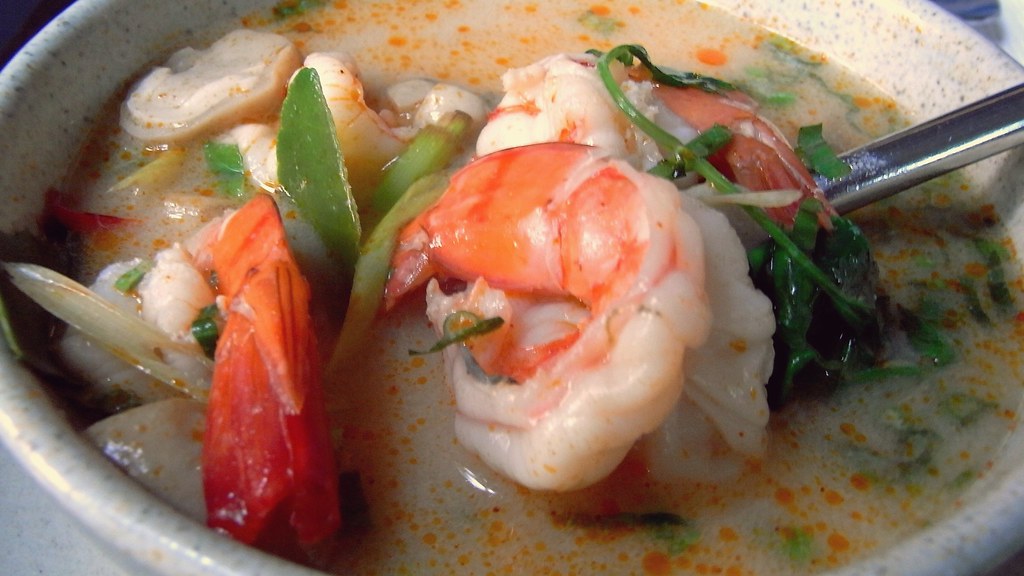
Transportation
In addition to regular buses, minibusses, taxis, and the metro system in Bangkok, Thailand offers exotic tuk-tuks as part of its urban transportation. A tuk-tuk is a compact pickup truck with an open bed fitted with benches for passengers. They come in larger sizes, similar to minibusses, and smaller, three-wheeled versions designed for two or three passengers.
Many travelers, even if they prefer traditional taxis, often opt for a tuk-tuk ride a couple of times. It provides a unique atmosphere and allows for a comfortable view of the city—no glass windows, and excellent visibility.
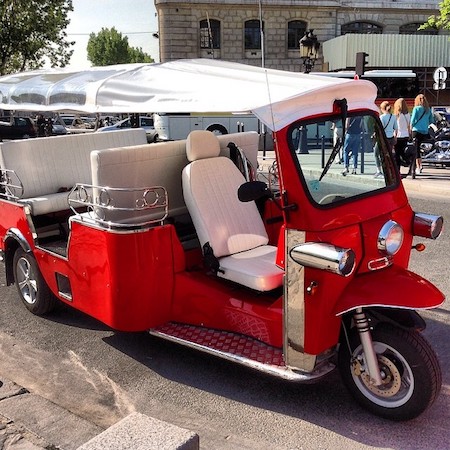
Buses
For inter-city travel in Thailand, trains and buses are the primary modes of transportation. While the railway system is not extensively developed, buses are generally preferred. It’s advised not to skimp on expenses, especially as the cheapest buses (usually orange) may lack air conditioning, making journeys uncomfortable in the scorching heat. Opting for a ticket on a “blue bus” is recommended, ensuring air-conditioned comfort and fewer stops along the way. Besides large intercity buses, minivans with air conditioning, known as minibusses, operate between Thai cities.
Trains
If you choose train travel, it’s again crucial not to overly economize. First-class tickets are preferable, and if needed, second-class tickets are acceptable, but third-class should be avoided. Note that second-class carriages may not always have air conditioning, as some have fans instead. Tickets can be purchased at counters or reserved online.
When it comes to reaching the islands, various options include ferries, high-speed catamarans, or long-tail boats—traditional wooden boats.
Safety Tips for Traveling in Thailand
Serious crimes against tourists in Thailand are rare, but thefts and scams are common issues. Here are some key safety rules:
Secure Your Belongings: Hold your bags tightly to avoid becoming a victim of snatch-and-grab theft, especially from motorbike-riding thieves. Keep an eye on your bags and pockets, especially in crowded or touristy areas. Thieves may attempt pickpocketing.
Avoid Carrying Documents and Large Sums of Cash: It’s generally safer not to carry valuable documents and large amounts of cash in your bags.
Use Hotel Safes: If available, use hotel safes to store your valuables. Avoid leaving expensive items unsecured in your room.
Take Inventory for Stored Items: If leaving valuables in storage with hotel staff, make sure to get a receipt and have them list the items and their value.
Exercise Caution in Jewelry Shops: Be cautious when buying gems or jewelry, especially from less-known stores. Stick to reputable establishments.
Be Wary of New Acquaintances: Drinking with new acquaintances in bars can be risky. Be cautious of drinks being spiked, and avoid situations that might lead to theft.
Exercise Caution with New Friends: Be cautious when making new friends, especially those with European appearances. Some scammers in Thailand are foreigners themselves.
Avoid Involvement in Legal Issues: Be wary of situations that could involve legal trouble. There have been cases where tourists are set up for extortion or legal complications.
It is strongly advised to avoid traveling to the southern provinces of Yala, Pattani, Narathiwat, and Songkhla. These areas are known for ongoing issues with local separatist groups, leading to regular incidents of violence, including terrorist attacks. Due to this, trips to these regions are highly discouraged. Additionally, unnecessary visits near the borders with Laos and Myanmar should be avoided due to potential security concerns.
Customs Regulations in Thailand
It is crucial for travelers to be aware of and adhere to Thai laws and regulations. Any violation, intentional or unintentional, may result in serious consequences.
Drug Offenses: Possession, trafficking, or smuggling of narcotics can lead to severe penalties, including lengthy prison sentences or even the death penalty for larger quantities.
Electronic Cigarettes: Importing electronic cigarettes into Thailand is prohibited. Violators may face fines up to 1 million Baht (approximately 2.7 million rubles) and up to 10 years in prison. Deportation with a fine is also a possible consequence.
Alcohol Import: Travelers are allowed to import up to 1 liter of alcohol. Any excess may be confiscated at the border.
Cultural and Religious Items: Exporting statues, images of Buddha, antiques, art objects, and items of religious significance requires permission from the Department of Fine Arts.
Tax Refund (VAT Refund for Tourists): Tax-free shopping applies to purchases exceeding 5000 Baht (around 13,500 rubles). Look for stores displaying the “VAT Refund for Tourists” sign. Tourists can receive a 7% refund on eligible purchases.
Travel Tips and Local Laws in Thailand
Respect for the Monarchy
It is essential to show utmost respect for the Thai king and royal family. Avoid any form of disrespect, including negative comments, gestures, or mishandling currency with the king’s image.
Head Touching
Never touch a Thai person’s head, as it is considered the most sacred part of the body. Avoid patting children on the head as well.
Respect for Buddha and Monks
Do not touch or climb on statues of Buddha, and show respect to monks by not touching them. When entering a temple, remove your shoes, and during worship, sit with your feet pointing away from Buddha.
Proper Temple Etiquette
When entering a temple, it is customary to remove your shoes. During religious ceremonies, sit in a respectful manner, facing Buddha with legs folded, either Turkish-style or in a lotus position.
Attire at Religious Sites
Dress modestly when visiting religious sites. While topless sunbathing is generally acceptable, full nudity or explicit behavior is prohibited.
Tipping in Restaurants
It is customary to leave a tip of 5–10% of the bill in restaurants.
Traffic Accidents
In the event of a car accident, never leave the scene. Leaving could be interpreted as an admission of guilt, potentially leading to criminal charges. Stay at the scene and involve the local authorities.
Dangerous Marine Life
Avoid picking up brightly colored cone snails as souvenirs. Their stings can be fatal. Seek immediate medical attention if stung, as timely treatment is crucial.
Consequences of Disturbing Wildlife
Never provoke or tease wild monkeys. They can be aggressive and may attack or steal belongings. If bitten or scratched, seek medical attention promptly.
Protection of Marine Ecosystems
It is illegal to feed fish in Thailand, as it disrupts the local ecosystem. Violating this rule can result in fines and legal consequences.
